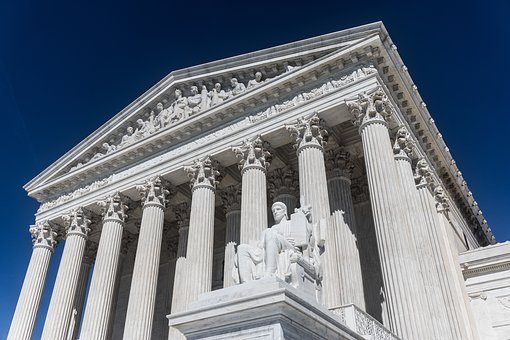
Edward Snowden isn’t a patriot. He’s not a hero. Most importantly, he does not deserve a presidential pardon. At best, Snowden should spend the rest of his life in the cold, dark cell of a federal penitentiary. Those calling for him to receive a pardon from President Donald Trump couldn’t be any more wrong.
By all accounts, Edward Snowden was living the American dream. As a 29-year-old high school dropout, Snowden managed to find his way into the U.S. intelligence community where he reportedly worked first as a technical analyst for the CIA, then as a contractor with Booz Allen Hamilton for the NSA. In his last role, Snowden reportedly made well over $100,000 per year — described as a “pay cut” from his previous jobs — while living in Hawaii near the beach with his girlfriend.
At some point during his career, Snowden alleges he became concerned about the scope of the U.S. government’s domestic surveillance program, a development he saw as an affront to American civil liberties. As a systems administrator, Snowden had access to more information and accounts than your average user. He used this experience to get a job as a contractor working for the NSA with the specific intent of gathering classified material.
In total, Snowden is alleged to have stolen an estimated 1.7 million highly classified documents during his time working in the U.S. intelligence community. It’s impossible for Snowden to have read all the titles of the documents in question, let alone their contents, to fully understand the damage done to U.S. national security by compromising them. Though his stated purpose was to expose a domestic surveillance program, both the material he collected and his actions cast doubt on this notion.
Snowden began leaking classified information about the existence and inner workings of highly sensitive intelligence collection operations to major news publications though his identity was initially unknown. While American authorities scrambled to deal with the fallout, the damage was already done, and Snowden fled to Moscow by way of Hong Kong in an attempt to avoid being apprehended.
Snowden’s disclosures of highly classified intelligence disrupted intelligence activity across the globe. Intelligence officers from the United States and its allies were recalled after their lives were put in jeopardy by the leaks. Terrorists and foreign adversaries began to switch means of communication to avoid detection. Entire collection platforms were rendered ineffective after adversaries became aware of critical and secret sources and methods. This left the United States and its allies vulnerable and blind to threats from real-world actors.
As evidenced by the global fallout from his actions, much of the material Snowden collected had nothing to do with domestic surveillance but rather overseas collection against adversaries. Further undermining his claims about concerns regarding American civil liberties, some of the programs he compromised were considered traditional spycraft that did not run afoul of fourth amendment protections against illegal search and seizure.
Snowden also failed to make his concerns known through any of the established channels available to a whistleblower. He did not report his concerns to the intelligence community inspector general or congress, which had no shortage of members who had concerns about domestic surveillance or a desire to attack the administration for political gain. Instead, Snowden chose to go to the press.
Many supporters will compare Snowden’s actions to the leaking of the infamous “Pentagon Papers” that exposed the U.S. government was lying to the American people about Vietnam and knew we were losing. They are wrong, however, to make this comparison.
The Pentagon Papers were a specific series of documents that were part of a study of the War in Vietnam. Despite the illegality of the action, those who leaked the papers narrowed the scope of their disclosure to just those reports that brought awareness to that particular issue. Subsequently, they stood trial and were cleared by the courts. It’s also worth noting this took place at a time when whistleblower protections were almost nonexistent.
Snowden didn’t tailor his disclosures of classified material to support his alleged concerns regarding American civil liberties. He compromised the lives of assets and collection platforms and put the nation at risk. He also didn’t make use of any of the whistleblower options that were available to him. Then, instead of standing his ground and pleading his case, he fled into the arms of America’s adversaries and compromised millions of classified documents. Quite simply, his actions don’t match his words.
At this time, Snowden still resides in Moscow, where he walks the streets as a free man under the watchful protection of one of our nation’s greatest foes after committing exceptionally grave damage to U.S. national security. If he really and truly believes that what he did was right, he should return to the United States and stand trial. To date, he has expressed no remorse for the damage he has caused. Under the cumulative weight of the circumstances, he is unworthy of a presidential pardon.
Via The Federalist
